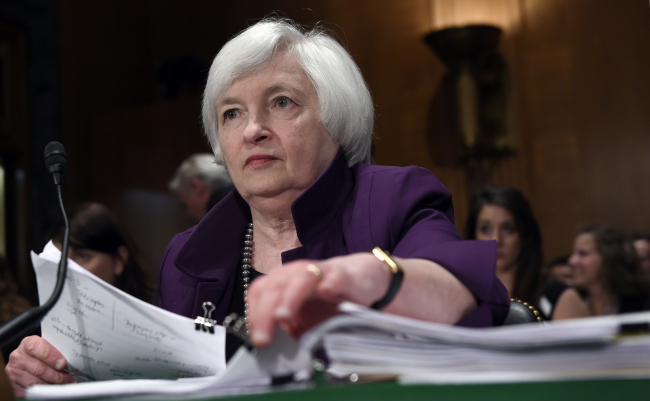South Korea’s Finance Minister Choi Kyung-hwan dismissed Wednesday market analysis that the nation’s stock market was showing signs of being coupled with that of China, whose index recently plummeted.
His refutation came a day after China’s monetary policymakers cut the country’s benchmark interest rate to shore up its economy. Later in the day, shares on the Shanghai bourse lost ground again.
Though the domestic market is being affected by concerns over China’s slowdown, the recent synchronization between Korean and Chinese bourses is not an ordinary trend, said the deputy prime minister and finance minister during an economy-related ministers’ meeting.
“While the Chinese stock index rapidly gained from the end of last year (during the first half), the rally of the Korean market was limited,” he said.
Choi, however, said there is no doubt that the uncertainty has been aggravated domestically due to external risks, including the Chinese slowdown and a possible rate hike in the U.S.
 |
U.S. Federal Reserve chair Janet Yellen (AP) |
He said the government plans to “bolster monitoring of the financial market and vitalization of the capital market (in a move to overcome the bearish bourse situation).
While the minister has not commented on the impacts on Korea from the Chinese rate cut, Bank of Korea governor Lee Ju-yeol said it is not easy to predict the coming effects. He only forecasted that “the impacts would be complex.”
One of the few general projections among private researchers was that the monetary easing would have a positive effect on the manufacturers whose main export destination is China, citing an expected recovery in the Asian superpower’s domestic demand.
China cut interest rates Tuesday for a fifth time in nine months by 25 basis points to 4.6 percent per annum. In addition, the country increased the amount of money available for lending by reducing the minimum capital reserves banks are required to hold by 0.5 percentage point.
Despite the rate cut, the Shanghai Stock Exchange Composite Index inched down 0.48 percent to close at 2,950.62 on Wednesday, falling for a fifth consecutive session.
In contrast, Korean stocks bounced back for the second consecutive day to approach the 1,900 mark, despite foreign investors maintaining their net-seller positon for 15 consecutive sessions in a row.
Following the overnight rebounds in European bourses and in accordance with gains of major Asian stock indexes, the benchmark KOSPI climbed 47.46 points, or 2.57 percent, from a session earlier to close at 1,894.09.
Cosmetics-related export-driven stocks including AmorePacific and babycare industry stocks gained sharply on expectations over China’s recovery in private consumption from its rate cut.
Institutional investors net purchased equities worth 388.6 billion won ($327.1 million), posting a net-buyer stance for the 10th consecutive session. While small investors also net bought, foreign investors maintained their net-seller position by unloading $547.9 billion worth.
Analysts predict that the next one or two weeks will determine the direction of the emerging stock markets, They say the core issue is whether the U.S. Federal Reserve will delay its interest rate hike, which could deal a blow to Asian markets in terms of possibly massive capital outflow.
The secondary KOSDAQ climbed by 3.41 percent, or 22.01 points, to close at 667.44.
By Kim Yon-se (
kys@heraldcorp.com)



![[Today’s K-pop] Blackpink’s Jennie, Lisa invited to Coachella as solo acts](http://res.heraldm.com/phpwas/restmb_idxmake.php?idx=644&simg=/content/image/2024/11/21/20241121050099_0.jpg)




